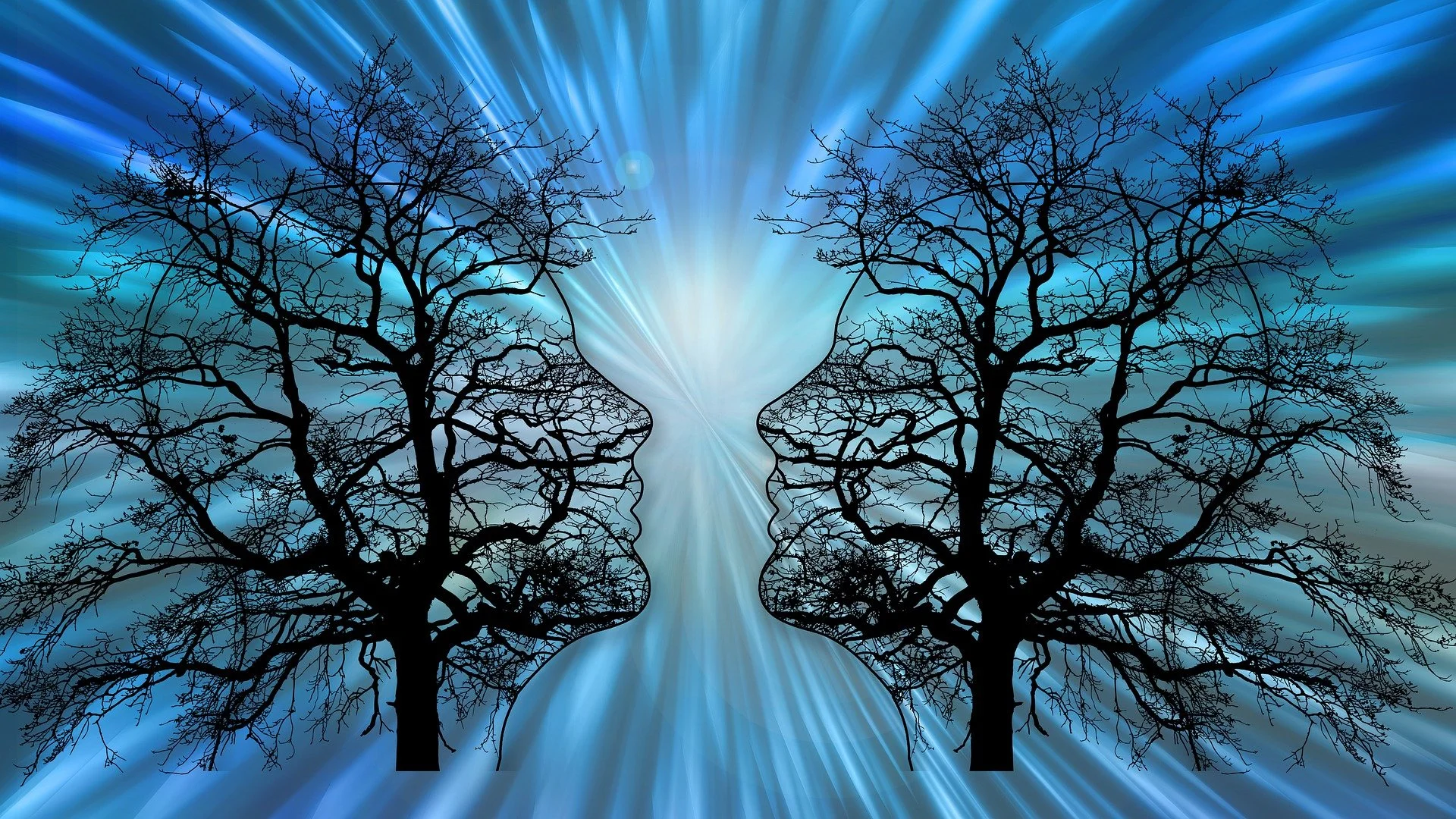
For Clinicians
We’ll lay the foundation for better treatment success.
We all see patients with myriad complaints in multiple organ systems for whom tests and treatments have not identified a clear diagnosis or effective treatment plan – the complex, mystery patients. I know from experience the frustration when the same patient is in the office again and again and you’ve run out of recommendations, but see they’re suffering.
— Jessica Jimison, FNP-C, IFMCP
OCC’s Functional Medicine approach prioritizes regulation of the autonomic nervous system.
Polyvagal Theory explains the physiologic impacts of chronic stress, developmental trauma, and social determinants of health; immune systems are dysregulated away from healing because the ANS is in a state of protection.
We work with people one-on-one and in small groups to foster social connection and relational safety, which lays the groundwork to bring the immune system back online for health, growth, and restoration via regulation of the ANS. This foundation optimizes the effectiveness of our Functional Medicine interventions for improving heart rate variability, nutritional status, mitochondrial efficiency, elimination patterns, intestinal microbial diversity, healthy sleep, and exercise tolerance.
Our patients have histories of poorly understood symptoms and either no diagnosis or a multitude of diagnoses.
Recent research suggests that many of these patients have Mast Cell Activation Syndrome (MCAS) (either primary or secondary) or Mast Cell Disease (MSD) as an underlying factor that creates an environment of chronic inflammation. Typically, these patients complain of symptoms in multiple organ systems (often including anxiety and/or depressive patterns) and have sought care in a variety of disciplines, which is consistent with an MCAS presentation. (Afrin, LB, Never Bet Against Occam: Mast Cell Activation Disease and the Modern Epidemics of Chronic Illness and Medical Complexity, 2016)
These challenging patients often respond unusually to treatment attempts; their reactions can be paradoxical, they can have no response at all, or they don’t tolerate even low doses of medications. Until their mast cell membranes are stabilized, they often cannot tolerate the treatments they need. We work with patients to stabilize the mast cell membranes via autonomic nervous system regulation as well as dietary, supplement, and medication interventions.
We specialize in supporting patients with complex, chronic inflammatory conditions.
We require our patients to have a PCP and we appreciate the opportunity to collaborate with providers of other disciplines.
Diagnoses we support by specialty
Many of the symptoms causing a person with autonomic nervous system dysregulation to be referred to a specialist do not meet diagnostic criteria for a diagnosis. These patients have often had this same experience in multiple organ systems and with multiple specialists, and are often not receiving treatment because of lack of diagnosis, or are responding oddly to treatments.
-
Mast Cell Activation Syndrome
Oral Allergy Syndrome
Hives: idiopathic or chronic
Allergy Test inconsistencies
Adult Onset Asthma
Eczema
Angioedema without any obvious trigger
Anaphylaxis without any obvious trigger
Immune Deficiencies
Chronic rhinitis
-
Mast Cell Activation Syndrome (MCAS)
Chronic fatigue
Fibromyalgia
POTS
Ehlers Danlos Syndrome
Gastrointestinal issues
Adult onset asthma
Excessive allergy and food intolerance issues
Chronic hives
Chronic Lyme and coinfections
Mold toxicity/illness
Chronic yeast infections
Autoimmune diseases
Interstitial cystitis
Pelvic pain
Unidentifiable musculoskeletal pain
Migraines
Rashes that don’t seem to follow a classic pattern
Immune deficiencies
People who just have “weird health stuff”
(Usually with features of anxiety and/or depression present also)
-
POTS
Ehlers Danlos Syndrome, hypermobile type
Palpitations without identified pathology
Varicose veins in young people
Idiopathic chest pain
-
Mast Cell Activation Syndrome (MCAS)
Chronic fatigue
Fibromyalgia
POTS
Ehlers Danlos Syndrome
Gastrointestinal issues
Adult onset asthma
Excessive allergy and food intolerance issues
Chronic hives
Chronic Lyme and coinfections
Mold toxicity/illness
Chronic yeast infections
Autoimmune diseases
Interstitial cystitis
Pelvic pain
Unidentifiable musculoskeletal pain
Migraines
Rashes that don’t seem to follow a classic pattern
Immune deficiencies
People who just have “weird health stuff”
(Usually with features of anxiety and/or depression present also)
-
Hydradenitis suppurativa
Hives: idiopathic, autoimmune, or chronic
Eosinophilic rashes
Pruritis without rash
Eczema
Psoriasis
Skin tags (more than a couple)
Angular cheliltis (refractory)
Perioral dermatitis
Seborrheic dermatitis
Nonspecific rashes (often change over time)
People who tend to be rash-y, but often no trigger is identified
Keloid tendencies
Inclusion cysts/sebaceous cysts
Folliculitis, recurrent
-
Chronic rhinitis
GERD, especially refractory to treatment
Vocal Cord Dysfunction
Sinus infections, chronic/poor resolution
Ear infections, chronic or recurrent
-
GERD that is refractory to typical treatments
Nonspecific gastritis
Diarrhea/constipation/abdominal pain that doesn't seem to have any predictable pattern or other explanation
IBS with diarrhea that recurs after treatment with rifaximin
Mucus in stool that isn't associated with colitis on exam
Oral allergy syndrome
Pruritus ani
Unexplained pelvic pain
-
Unexplained pelvic pain
Vulvar or vaginal itching without fungal or bacterial explanation
Interstitial cystitis
Allergic-type reaction in the vagina
Dyspareunia
Excessive leukorrhea
Hives/other histamine-related reactions that occur in the last few days of the menstrual cycle
Idiopathic endometritis
Excessive endometriosis
Fibroids in young women (mast cell mediators can influence toward excess tissue growth, so people often have incidental findings on scans of polyps, cysts, and other growths in any organ or on the skin)
Hydradenitis suppurativa
-
Migraines
Tinnitus without loud noise etiology
Small fiber neuropathy
Paresthesias
Symptoms consistent with MS, without meeting diagnostic criteria
Brain Fog
Chronic Fatigue
Sensory processing issues
-
Joint pain without finding or arthritis
Arthritis earlier in life than anticipated from clinical history
Sprains that take longer than normal to heal despite appropriate care
Poor healing at surgical sites (including what looks like infected surgical site but doesn’t grow anything on culture—excessive inflammation caused by mast cells)
Keloid formation at surgical sites
Tendonitis that takes longer to resolve than expected, or needs steroid injection to heal
-
Chronic fatigue
Fibromyalgia
POTS
Ehlers Danlos Syndrome
Gastrointestinal issues
Adult onset asthma
Mast Cell Activation Syndrome (MCAS)
Excessive allergy and food intolerance issues
Migraines
Interstitial cystitis (urinary frequency without infection)
Unexplained hematuria
Chronic hives
“Chronic Lyme” and coinfections
Mold toxicity/illness
Chronic yeast infections
Autoimmune diseases
Pelvic pain
Unidentifiable musculoskeletal pain
Rashes that don’t seem to follow a classic pattern
Immune deficiencies
People who just have “weird health stuff”
-
Adult-Onset Asthma
Tightness in Chest without pulmonary or cardiac explanation
COPD without a history that explains the development of the pathology
Dyspnea on exertion without pulmonary or cardiac explanation
-
Fibromyalgia
Ehlers-Danlos Syndrome, hypermobile type
Seronegative Rheumatoid findings
Autoimmunity: + ANA but without diagnostic criteria for disease
Chronic Tendonitis
Hypermobility
Connective Tissue issues: tightness or laxity
-
Interstitial cystitis
Unexplained frequency or urgency of urination
Kidney or bladder pain without findings of calculus or infection
Sterile cystitis
Unexplained hematuria
Unexplained inflammation of the bladder
“As a trauma therapist with some (not extensive) exposure to Polyvagal Theory, I was stunned by the presentation “Removing Obstacles to Healing” with Jessica and Micaela. I had never before understood the relationship between stress/trauma and the immune system which they laid out so clearly. But then, I was completely blown away with their [experiential group education and practice] series on the Polyvagal Theory. I learned about my own system as well as how to recognize dysregulation in my clients at a much more subtle level than before.”
— Joan C., PsyD


